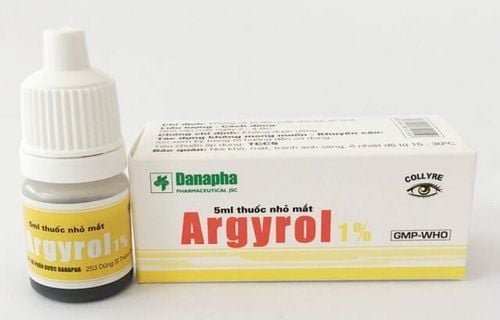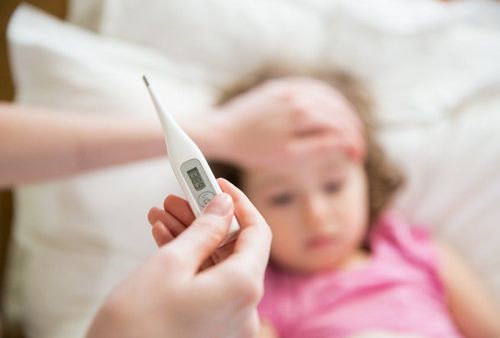Viral fever is common during seasonal transitions, particularly when the weather changes from cold to warm. It usually resolves on its own within 7–10 days and rarely causes long-term complications. However, children are more likely to experience repeated episodes of fever.
Is recurrent viral fever in children a cause for concern? How should parents manage and treat it in a timely manner?
1. Is Viral Fever the Same as a Viral Infection?
A fever is defined as a body temperature above 38°C when measured rectally. While fever is generally a beneficial immune response, prolonged high body temperatures can cause fatigue and other adverse effects.
In children, fever can be caused by many factors, including infections, insect bites, or even serious underlying conditions. However, viral fever—caused by viruses—is the most common cause.

2. Is Viral Fever Contagious?
Research shows that more than 200 types of viruses can cause illness in children, including common ones like respiratory syncytial virus (RSV), adenovirus, and rotavirus. Viruses are highly contagious, spreading easily within families and communities through respiratory droplets or direct contact.
If a family member has a viral infection, they should avoid close contact with children. Similarly, children with viral fever should rest at home to prevent spreading the illness to others in school.
3. Can Children Get Viral Fever More Than Once?
It’s important to note that viral fever is not a major concern if properly diagnosed and managed. Parents should carefully monitor and care for their child during a fever episode. However, children can experience viral fever multiple times, sometimes within weeks of recovery.
This is because there are hundreds of virus strains capable of causing fever, and the immune system is not equipped to defend against all of them. Additionally, living in environments with poor isolation measures can lead to recurring viral fever.

4. How Dangerous Is Viral Fever in Children?
Unlike adults, children’s immune systems are not fully developed, making them more susceptible to external factors. Fever is the body’s natural defense mechanism against infections. However, without timely diagnosis and management, viral fever can lead to severe consequences:
- Prolonged Fever: A child with a persistent fever may become extremely fatigued, lose their appetite, or refuse to breastfeed. This can result in nutritional deficiencies, making it harder for the body to fight the illness and develop properly. If left unchecked, the child may become severely weakened or even slip into a coma.
- Seizures: Since the nervous system in children is still developing, a high fever above 41°C can trigger seizures, posing significant risks to their overall development.
- Secondary Infections: Prolonged viral fever weakens the immune system, creating conditions for secondary infections like pneumonia, which is a leading cause of death in children.
5. How to Prevent and Manage Viral Fever in Children?
Viral fever is a common condition, particularly in young children. To reduce the risk of fever episodes, pediatricians recommend the following:
- Boost Immunity: Provide a well-balanced diet rich in nutrients, especially vitamins from fruits and vegetables, to strengthen the immune system.
- Encourage Physical Activity: Older children should be encouraged to engage in regular physical activities without overexertion.This not only supports the child’s overall development but also helps build a strong immune system to fight illnesses.
- Keep Young Children Warm and Isolated: Ensure infants and young children are kept warm and protected from potential sources of infection within the family or community.
- Vaccination: Ensure your child receives all recommended vaccinations. This not only strengthens their immunity but also contributes to better community health.

If your child shows symptoms such as loss of appetite, refusal to breastfeed, chills, nausea, or a fever above 38°C, you should closely monitor them and take the following steps:
- Administer Paracetamol as prescribed by a doctor (10–15 mg per kg of body weight per dose, not exceeding four doses per day).
- Keep your child warm and allow them to rest in a spacious, well-ventilated room.
- Ensure they stay hydrated by offering plenty of fluids, especially vitamin C-rich fruit juices to support their immune system.
- Provide nutritious, soft foods that are easy to swallow. Avoid forcing them to eat if they are fussy or uncomfortable.
If your child’s fever persists or escalates despite home care, or if they respond poorly to fever-reducing medications, it’s essential to take them to a healthcare facility promptly. Delayed treatment can lead to severe complications such as coma or seizures caused by prolonged high fever.
While viral fever in children is not typically life-threatening, failure to manage and treat it appropriately can significantly impact their development and, in extreme cases, result in fatal outcomes.
If your child shows symptoms such as loss of appetite, refusal to breastfeed, chills, nausea, or a fever above 38°C, you should closely monitor them and take the following steps:
Administer Paracetamol as prescribed by a doctor (10–15 mg per kg of body weight per dose, not exceeding four doses per day).
Keep your child warm and allow them to rest in a spacious, well-ventilated room.
Ensure they stay hydrated by offering plenty of fluids, especially vitamin C-rich fruit juices to support their immune system.
Provide nutritious, soft foods that are easy to swallow. Avoid forcing them to eat if they are fussy or uncomfortable.
If your child’s fever persists or escalates despite home care, or if they respond poorly to fever-reducing medications, it’s essential to take them to a healthcare facility promptly. Delayed treatment can lead to severe complications such as coma or seizures caused by prolonged high fever.
While viral fever in children is not typically life-threatening, failure to manage and treat it appropriately can significantly impact their development and, in extreme cases, result in fatal outcomes.
To schedule an appointment at the hospital, please contact the HOTLINE or book directly HERE. Download the MyVinmec App to manage, track, and schedule appointments conveniently anytime, anywhere.














